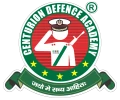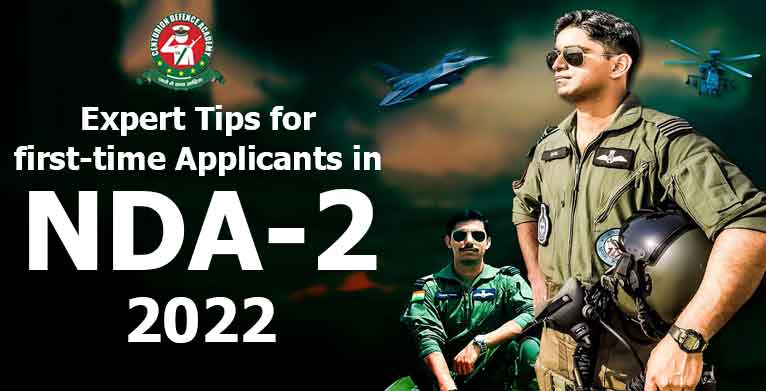
If you are looking for quality guidance to crack the NDA entrance examination, Centurion Defence Academy is your one-stop solution. We offer coaching classes for the UPSC NDA | NA written examination along with holistic SSB preparation. With our holistic guidance approach and the highest final selection rate, we stand out as the best NDA coaching institute in Lucknow, India. We have offline centers in Lucknow and Dehradun, and we also provide online courses through the Centurion Digital App.
Our faculty members are highly qualified and experienced in NDA exam preparations. The standards of excellence followed by Centurion ensure that each student who opts for NDA coaching with us feels confident and well-prepared for the NDA exam. We cover the entire syllabus subject by subject as per UPSC guidelines, and we also prepare our students with mock tests, previous year question papers, and weekly doubt-clearing sessions to monitor each student’s progress. Results from mock tests and weekly tests are discussed to pinpoint areas where students may need improvement. This approach ensures that students understand what to expect in the examination, how to approach it, manage their time efficiently, and achieve the best possible results.
Our experienced and updated faculty teaches students how to handle the NDA examination specifically, focusing on the format and types of questions likely to be asked. Students learn various formulas and shortcuts to obtain quick and accurate answers. We also provide extensively researched study material that helps students easily access, organize, and systematically approach the vast NDA syllabus.
Why Choose Centurion Defence Academy for NDA Preparation?
- Finest NDA Coaching: Centurion Defence Academy is India's finest armed forces preparatory coaching institute. With over 15 years of experience, Centurion Academy is the trusted choice for NDA written and SSB interview preparation.
- Infrastructure: The Centurion Defence Academy campus has the best quality infrastructure, including separate hostel facilities for boys and girls, set in a lush green, pollution-free environment. Our other facilities include a GTO ground and CPSS test facility for providing a comprehensive training environment.
- Teachers: Our highly qualified and experienced faculty members offer the right guidance to achieve the best results in the NDA exam. Unlike many other institutes that employ part-time teachers, Centurion Academy's students are taught by permanent faculty members.
- Library: Centurion Defence Academy features a fully equipped library with numerous important books related to the NDA syllabus and competitive exam preparation. Students can refer to these books and study materials for self-study, revision, and practice.
- Timed Discipline: As a defence preparatory institute, Centurion Defence Academy enforces strict rules and a Code of Conduct. Students must adhere to these guidelines, and failure to do so may result in expulsion without refunds. These rules instill good values and discipline, and emphasize the importance of time management.
- Physical Fitness: Centurion Defence Academy offers opportunities to participate in a variety of sports, including basketball, football, cricket, and various indoor and outdoor games. We also host an 'Academy Sports Week,' where students can compete in all sports events and other championships.
- Till Selection Batches: Unlike other institutes that offer limited preparation periods, Centurion Defence Academy runs "Till Selection Batches'' for the NDA written exam. This way, we ensure continuous support and preparation until the student is selected.
Our NDA Courses and Duration
Our exclusive courses cover all aspects of the NDA examination syllabus. We offer NDA courses with durations of 3 months, 6 months, 1 year, and "Till Selection." In our institute, quilty guidance is our priority, hence seats are limited and available on a first-come, first-served basis. Before granting admission, we organize a pre-admission counseling session to better understand the students and help them know our institute and the guidance they will receive.
Our NDA Course Key Features:
- Classroom Preparation: Our daily scheduled classes span 180 minutes, covering Mathematics, English, and General Science. They include all aspects of the NDA examination syllabus as prescribed by the UPSC. The schedule may be adjusted based on lesson plans, batch performance, and outcomes. Our free Personality Development (PD) and spoken English classes are conducted every Saturday.
- India’s Best and Exclusive Study Material: We provide our own books for written exams, question banks, practice sets for each subject, and ready reference notes for important topics. All materials are extensively researched and prepared after analyzing previous years’ exam patterns.
- Doubt Clearing Sessions: Daily assignments and practice sets help students assess their progress. Model papers featuring important questions are provided. Doubt clearing sessions are held to address all student queries comprehensively.
- Comprehensive Test Series: Weekly practice tests for each subject prepare students for upcoming competitions and provide essential self-assessment tools. Mock tests are also conducted to prepare students for the NDA written exam.
- Current Affairs/GK: Weekly updates on defence-related news, significant developments, events, and notable figures are provided. General Knowledge is covered thoroughly.
- Syllabus Covered: Our NDA written exam coaching includes English, General Knowledge & Current Affairs, Mathematics, Physics, Chemistry, Biology, History, Geography, Polity, Economics, Polity and Constitution as well as other important topics.
Why Opt for NDA Coaching?
To prepare effectively for a competitive exam like the NDA, coaching is essential to gain an edge over others. With over 8,00,000 students sitting for this exam annually—a number that continues to increase—the competition is intense. Even a single mark can be the difference between selection and rejection. Currently, there are approximately 400-450 seats available at the NDA, making it important for serious candidates to have a competitive advantage, which coaching can provide.
Advantages of NDA Coaching:
- Expert Faculty: Students benefit from the vast experience of subject and examination experts.
- Comprehensive Study Material: Coaching provides examination-specific study materials, including notes, practice sets, assignments, and worksheets, which are crucial for effective preparation.
- Immediate Doubt Clearance: Any concept doubts can be addressed promptly, helping students build strong fundamentals.
- Peer Interaction: Meeting other candidates preparing for the same exam can be motivating. Students can exchange knowledge and understand their competition.
- Regular Mock Tests: These tests ensure students are mentally prepared for the exam day, familiarizing them with the exam format and helping them understand what to expect.
- Discipline and Study Habits: Coaching helps students develop discipline, concentration, and effective study habits, which are often more beneficial than ordinary self-study.
What is the NDA Exam?
The National Defence Academy (NDA) is the Joint Services academy of the Indian Armed Forces, where cadets from the Army, Navy, and Air Force train together before proceeding to pre-commissioning training at their respective service academies. Located in Khadakwasla near Pune, Maharashtra, the NDA is the world’s first tri-service academy.
NDA alumni have led and participated in every major conflict involving the Indian Armed Forces since the academy’s establishment. The alumni include 3 recipients of the Param Vir Chakra and 9 recipients of the Ashoka Chakra.
The NDA, or National Defence Academy, is a premier institution for training selected young men for officer-level entry into the Armed Forces of India. It is not merely an institution but a way of life that transforms young cadets into honorable, physically and mentally competent officers prepared for any adversity.
The training at the NDA is rigorous. In addition to service training specific to the Army, Navy, and Air Force, cadets also receive academic instruction to complete a graduation-level degree in Arts, Sciences, or Computers. The training is divided into six terms, with a total duration of three years. Upon completing their training, cadets are awarded their bachelor's degree at the NDA passing-out parade. They then proceed to their respective service institutes: the Indian Military Academy (IMA) for Army cadets, the Air Force Academy in Hyderabad for Air Force cadets, and the Indian Naval Academy in Kerala for Naval cadets.
How to Apply for the NDA Exam
The NDA and NA written entrance examination is conducted by UPSC twice a year. Notifications for the exam are published in December/January for the April exam and in May/June for the September exam. The examinations are held in April and September. Candidates must apply online through the UPSC website after the notification is released by the UPSC.
IMPORTANT INFORMATION:
| Tentative Vacancies Per Course | 400 (Twice a year) or As notified from time to time |
| Notification in Employment News/ leading daily news Paper/ UPSC website | Jun and Dec as Notified by UPSC |
| ELIGIBILITY CRITERIA | |
| Age | Between 16 ½ to 19 ½ years |
| Qualification | 12th Class of 10+2 System of Education. Maths and Physics are compulsory for Air force and Navy. Candidates from any stream can apply for the Army. |
| Sex | Male and Female |
| Marital Status | Unmarried |
| Likely SSB Date | Sep to Oct and Jan to Apr |
| Date Commencement of Training | Jan and Jul |
| Training Academy | NDA , Khadakwasla, Pune |
| Duration of Training | 3 Yrs at NDA and 1 Yrs at IMA(For Army cadets)/ 3 Yrs at NDA and 1 Yrs at Naval Academy( for Naval cadets)/ 3 Yrs at NDA and 1 & ½ Yrs at AFA Hyderabad (For AF cadets) |
NDA EXAM PATTERN
NDA written exam is comprised of two tests. Duration of each test is two and a half hours and both are conducted on the same day, consecutively. Examination is set by the UPSC.
| Test/ Paper | Subject | Duration | Maximum Marks |
|---|---|---|---|
| I | Mathematics | 2.5 hours | 300 |
| II | General Ability Test | 2.5 hours | 600 |
| Total= 900 |
NDA Math Paper Topics
- Algebra
- Matrices and Determinants
- Trigonometry
- Analytical Geometry of Two and Three-Dimensions
- Differential Calculus
- Integral Calculus and Differential Equations
- Vector Algebra
- Statistics and Probability
NDA Math Exam Pattern and Marking Scheme
| Particulars | Details |
|---|---|
| Subject | Mathematics |
| Paper | Paper 1 |
| Paper Code | 01 |
| Shift | First |
| Total Questions | 120 |
| Total Marks | 300 |
| Time Duration | 2 ½ Hours |
| Positive Marking | 2.5 Marks |
| Negative Marking | 0.83 Marks |
| Questions Type | Objective |
| Exam Mode | Offline (OMR Sheet) |
Algebra
- Concept of set
- Operations on sets
- Venn diagrams
- De Morgan laws
- Cartesian product
- Relation, equivalence relation
- Representation of real numbers on a line
- Complex numbers—basic properties, modulus, argument
- cube roots of unity
- Binary system of numbers
- Conversion of a number in decimal system to binary system and vice-versa
- Arithmetic, Geometric and Harmonic progressions
- Quadratic equations with real coefficients
- Solution of linear inequations of two variables by graphs
- Permutation and Combination
- Binomial theorem and its applications
- Logarithms and their applications
Matrices and Determinants
- Types of matrices
- Operations on matrices
- Determinant of a matrix
- Basic properties of determinants
- Adjoint and inverse of a square matrix
- Applications-Solution of a system of linear equations by Cramer’s rule
- Applications-Solution of a system of linear equations by Matrix Method
Trigonometry
- Angles and their measures in degrees and radians
- Trigonometrical ratios
- Trigonometric identities
- Sum and difference formulae
- Multiple and Sub-multiple angles
- Inverse trigonometric functions
- Applications-Height and distance
- Properties of triangles
Analytical Geometry of Two and Three-Dimensions
- Rectangular Cartesian Coordinate system
- Distance formula
- Equation of a line in various forms
- Angle between two lines
- Distance of a point from a line
- Equation of a circle in standard and general form
- Standard forms of parabola, ellipse and hyperbola
- Eccentricity and axis of a conic
- Point in a three-dimensional space
- Distance between two points
- Direction Cosines and direction ratios
- Equation of a plane and a line in various forms
- Angle between two lines and angle between two planes
- Equation of a sphere
Differential Calculus
- Concept of a real-valued function
- Domain, range and graph of a function
- Composite functions, one-to-one, onto and inverse functions
- Notion of limit, Standard limits—examples
- Continuity of functions—examples
- Algebraic operations on continuous functions
- Derivative of function at a point
- Geometrical and physical interpretation of a derivative
- Derivatives of sum, product and quotient of functions
- Derivative of a function with respect to another function
- Derivative of a composite function
- Second order derivatives
- Increasing and decreasing functions
- Application of derivatives in problems of maxima and minima
Integral Calculus and Differential Equations
- Integration as inverse of differentiation
- Integration by substitution and by parts
- Standard integrals involving algebraic expressions
- Trigonometric, exponential and hyperbolic functions
- Evaluation of definite integrals
- Determination of areas of plane
- Regions bounded by curves—applications
- Definition of order and degree of a differential equation
- Formation of a differential equation by examples
- General and particular solution of a differential equation
- Solution of first-order and first-degree differential equations of various types
- Application in problems of growth and decay
Vector Algebra
- Vectors in two and three-dimensions
- Magnitude and direction of a vector
- Unit and null vectors
- Addition of vectors
- Scalar multiplication of a vector
- Scalar product or dot product of two vectors
- Vector product or cross product of two vectors
- Applications—work done by a force
- Moment of a force in geometrical problems
Statistics and Probability
Statistics
- Classification of data
- Frequency distribution
- Cumulative frequency distribution—examples
- Graphical representation—Histogram, Pie Chart
- Frequency polygon—examples
- Measures of Central tendency—Mean, median and mode
- Variance and standard deviation—determination and comparison
- Correlation and regression
Probability
- Random experiment
- Outcomes and associated sample space events
- Mutually exclusive and exhaustive events
- Impossible and certain events
- Union and Intersection of events
- Complementary, elementary and composite events
- Definition of probability—classical and statistical—examples
- Elementary theorems on probability—simple problems
- Conditional probability
- Bayes’ theorem—simple problems
- Random variable as function on a sample space
- Binomial distribution
- examples of random experiments (Binomial distribution)
NDA GAT Syllabus and Exam Pattern
| Particulars | Details |
|---|---|
| Subject | GAT |
| GAT Full Form | General Ability Test |
| Paper | Paper 2 |
| Paper Code | 02 |
| Shift | Second |
| Total Parts | Two - “A” and “B” |
| GAT Part A | English |
| GAT Part B | General Knowledge |
Total Questions |
150 |
| Part “A” - English: 50 | |
| Part “B” - General Knowledge: 100 | |
Total Marks |
600 |
| Part “A” - English: 200 | |
| Part “B” - General Knowledge: 400 | |
| Time Duration | 2 ½ Hours |
| Positive Marking | 4 Marks |
| Negative Marking | 1.33 Marks |
| Questions Type | Objective |
| Exam Mode | Offline (OMR Sheet) |
NDA GAT Paper Topics (Part “A” and Part “B”)
Part “A” - English
- Part “A” - English
- Grammar
- Reading Comprehension
- Vocabulary
- Synonyms
- Antonyms
- Idioms and Phrases
- Para Jumbles
- Spotting the Errors
- Sentence Sequencing
- Active and Passive Voices
- Direct and Indirect Speech
Part “B” - General Knowledge
- Section ‘A’ (Physics)
- Section ‘B’ (Chemistry)
- Section ‘C’ (General Science)
- Section ‘D’ (History, Freedom Movement, etc.)
- Section ‘E’ (Geography)
- Section ‘F’ (Current Events)
NDA GAT Paper Part “B” - General Knowledge
Since the General Knowledge part of the NDA GAT Paper consists of various sections, here is a breakdown of the complete syllabus.| Sections | Weightage |
|---|---|
| Section ‘A’ (Physics) | 25% |
| Section ‘B’ (Chemistry) | 15% |
| Section ‘C’ (General Science) | 10% |
| Section ‘D’ (History, Freedom Movement, etc.) | 20% |
| Section ‘E’ (Geography) | 20% |
| Section ‘F’ (Current Events) | 10% |
Section ‘A’ (Physics) Syllabus
- Physical Properties and States of Matter
- Mass, Weight, Volume, Density and Specific Gravity
- Principle of Archimedes
- Pressure Barometer
- Motion of objects
- Velocity and Acceleration
- Newton’s Laws of Motion
- Force and Momentum
- Parallelogram of Forces
- Stability and Equilibrium of bodies
- Gravitation
- Elementary ideas of Work, Power and Energy
- Effects of Heat
- Measurement of Temperature and Heat
- Change of State and Latent Heat
- Modes of transference of Heat
- Sound waves and their properties
- Simple musical instruments
- Rectilinear propagation of Light
- Reflection and refraction
- Spherical mirrors and Lenses
- Human Eye
- Natural and Artificial Magnets
- Properties of a Magnet
- Earth as a Magnet
- Static and Current Electricity
- Conductors and Nonconductors
- Ohm’s Law
- Simple Electrical Circuits
- Heating
- Lighting and Magnetic effects of Current
- Measurement of Electrical Power
- Primary and Secondary Cells
- Use of X-Rays
General Principles in the working of the following:
- Simple Pendulum
- Simple Pulleys
- Siphon
- Levers
- Balloon
- Pumps
- Hydrometer
- Pressure Cooker
- Thermos Flask
- Gramophone
- Telegraphs
- Telephone
- Periscope
- Telescope
- Microscope
- Mariner’s Compass
- Lightening Conductors
- Safety Fuses
Section ‘B’ (Chemistry) Syllabus
- Physical and Chemical changes
- Elements, Mixtures and Compounds, Symbols
- Formulae and Simple Chemical Equations
- Law of Chemical Combination (excluding problems)
- Properties of Air and Water
- Preparation and Properties of Hydrogen and Oxygen
- Preparation and Properties of Nitrogen and Carbon dioxide
- Oxidation and Reduction
- Acids, bases and salts
- Different forms of carbon
- Natural and Artificial Fertilizers
- Elementary ideas about the structure of Atom
- Atomic Equivalent and Molecular Weights
- Valency
Material used in the preparation of the following substances:
- Soap
- Glass
- Ink
- Paper
- Cement
- Paints
- Safety Matches
- Gun Powder
Section ‘C’ (General Science) Syllabus
- Difference between the living and non-living
- Basis of Life—Cells, Protoplasms and Tissues
- Growth and Reproduction in Plants and Animals
- Elementary knowledge of Human Body and its important organs
- Common Epidemics, their causes and prevention
- Food—Source of Energy for man
- Constituents of food
- Balanced Diet
- The Solar System—Meteors and Comets, Eclipses
- Achievements of Eminent Scientists
Section ‘D’ (History and Freedom Movement) Syllabus
- A broad survey of Indian History
- Emphasis on Culture and Civilisation
- Freedom Movement in India
- Elementary study of Indian Constitution and Administration
- Elementary knowledge of Five Year Plans of India
- Panchayati Raj System
- Co-operatives and Community Development
- Bhoodan, Sarvodaya
- National Integration and Welfare State
- Basic Teachings of Mahatma Gandhi
- Forces shaping the modern world
- Renaissance, Exploration and Discovery
- War of American Independence
- French Revolution,
- Industrial Revolution
- Russian Revolution
- Impact of Science and Technology on Society
- Concept of one World
- United Nations
- Panchsheel
- Democracy
- Socialism and Communism
- Role of India in the present world
Section ‘E’ (Geography) Syllabus
- The Earth
- Shape and size of the Earth
- Latitudes and Longitudes
- Concept of the time
- International Date Line
- Movements of Earth and their effects
- Origin of Earth
- Rocks and their classification
- Weathering—Mechanical and Chemical
- Earthquakes and Volcanoes
- Ocean Currents and Tides
- Atmosphere and its composition
- Temperature and Atmospheric Pressure
- Planetary Winds
- Cyclones and Anti-cyclones
- Humidity, Condensation and Precipitation
- Types of Climate
- Major Natural regions of the World
- Regional Geography of India
- Climate and Natural vegetation
- Mineral and Power resources
- location and distribution of agricultural and Industrial activities
- Important Sea ports
- Main sea, land and air routes of India
- Main items of Imports and Exports of India
Section ‘F’ (Current Events) Syllabus
- Important happenings and events in India
- Important international happening and events
- Prominent Indian personalities
- Prominent International personalities
- Prominent personalities connected with cultural activities
- Prominent personalities connected with sports
- Heritage and Culture
- Military exercises and locations
- Defence deals and countries
- Recent wars between countries
- Geographical locations of countries involved in war
- Important appointments
- Latest sports events held in India and abroad
- New schemes launched by the Government of India
- Important international seminars and their venues
- Important days and their themes
- Latest books and authors
- National and international awards and ceremonies
- Recent seminars and meetings related to climate change
- Important constructions such as tunnels and bridges
- Constitutional articles and provisions in the news
- Important places covered in the news recently
Results of the NDA Examination
UPSC declares the results of the NDA written exam within a month. These results can be viewed on the UPSC website. Candidates who qualify for the NDA written exam receive call letters for the SSB interview. The final merit list is prepared based on the candidates' performance in the NDA written exam, the SSB interview, and their physical and medical fitness. Joining letters and instructions are sent to candidates based on the available vacancies as per the merit list.







